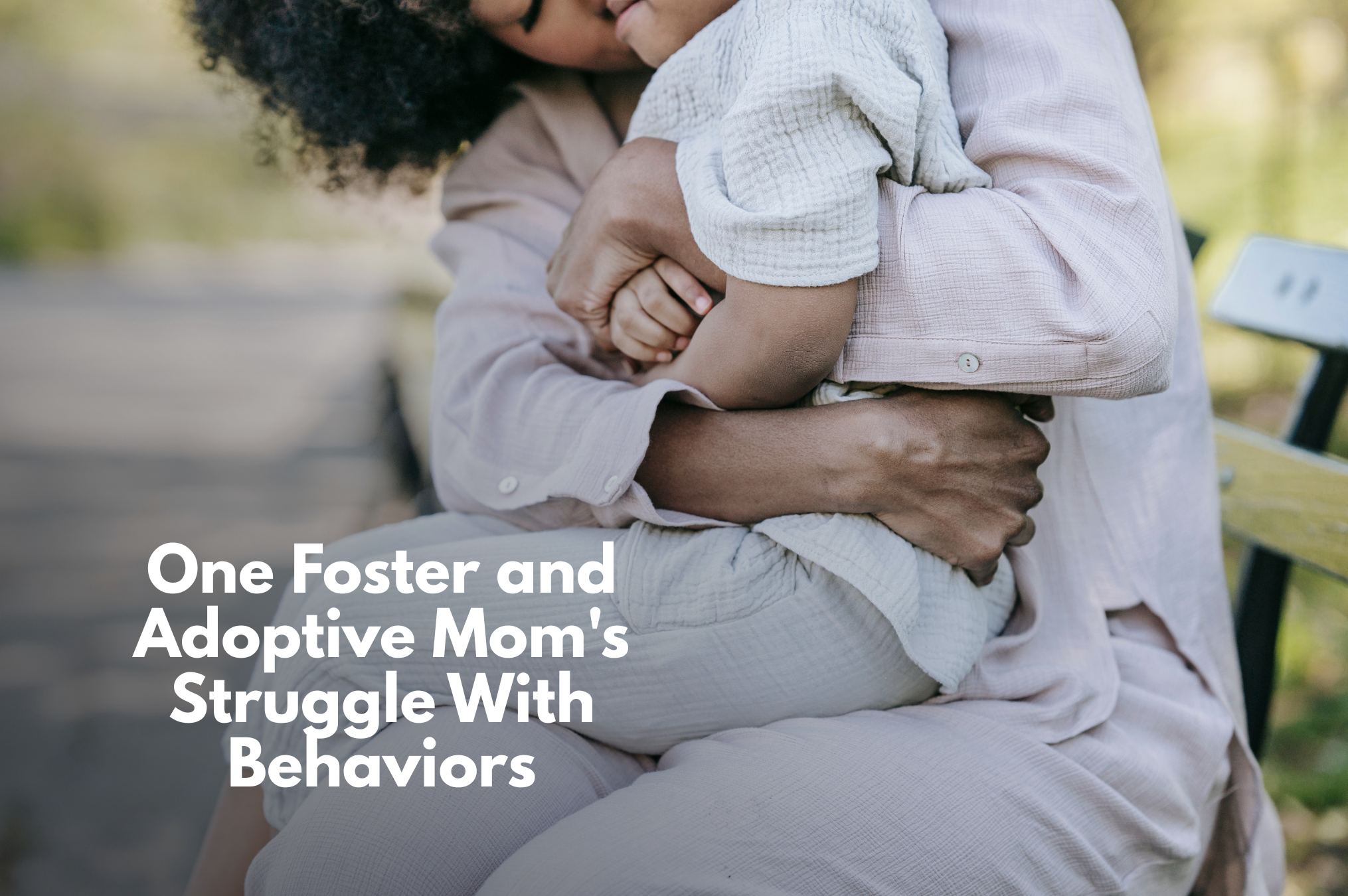One Foster and Adoptive Mom's Struggle With Behaviors
Of all the concerns and challenges of foster care, I’ve found that children’s behaviors while they’re in care can make or break a parent’s fostering journey. In my experience, the leading cause of displacement isn’t the behavior itself — it’s the combination of challenging behaviors plus a lack of support and resources like respite or access to mental health services.
If you’re a foster, adoptive, or kinship parent, you’ve probably seen some of these behaviors firsthand. If this is new to you, please know this is not meant to scare you. But if you want a real and raw picture of what this can sometimes look like, read on. It can be intense. But hear me clearly: there is no behavior that is hopeless.
Behaviors We’ve Encountered
Here are just a few from my own journey:
Running away
Punching holes in walls or doors
Hours of screaming
Headbanging or self-harm behaviors
Disrespecting teachers or school staff
Physical or verbal fights with classmates
Hours-long tantrums
Name-calling
Outright refusal to follow instructions or show respect
Let me tell you about a placement we had years ago. She had gotten upset, punched a hole in the wall, and ran out the front door, throwing glass picture frames along the way. She ran down the street – we couldn’t find her. After calling her social worker and the police, we then got in the car and started searching. Several hours later, we were finally able to get her back home and calm for the night.
If You’re Living This, You’re Not Alone
These kinds of moments can happen daily, multiple times a day, or feel like your kids have decided to take turns for who has a behavioral crisis next. Sometimes the crisis lasts minutes; other times it can stretch into days, weeks, or months without a break — affecting your whole household, including other children.
I see you. I understand the exhaustion, the heartache, and the questioning. And I want to share a few strategies that have helped me manage behaviors without resorting to displacement — both when I was fostering and now as an adoptive parent.
4 Ways I’ve Managed Behavior Challenges
1. Create Your Own “War Room”
If you’ve seen the movie War Room, you know the concept. I made one for myself with calming items — my Bible, my journal, photos of my kids and other things I love. There was a season when I found myself in that space multiple times a day, just to breathe, pray, and reset.
2. Build a Support Network That Gets It
Find a group of foster, adoptive, or kinship parents who have been there. They can be a place to vent without judgment, offer practical advice, and share resources they’ve used themselves. Many are also willing to trade respite or babysitting to give each other breaks.
3. Remember: It’s Not Personal
This was one of my hardest lessons. I used to blame myself for my kids’ behaviors, but often these are deeply rooted trauma responses. When an outburst starts, I whisper to myself, “This isn’t about me” — it helps me stay calm and present for them.
4. Don’t Match Their Behavior with Your Own
Another long lesson for me. Early on, I would keep trying to “fix” the crisis in the moment, which sometimes led to me losing my patience and eventually saying something hurtful. Then I’d feel guilty and upset with myself for yelling, creating even more to work through. Now, I remind myself that this will pass. We can talk later, when everyone is calm, and address consequences then.
You Don’t Have to Do This Alone
If you need help finding other foster, adoptive, or kinship families (or you need help accessing support) and you’re in the Northern region of Virginia, reach out to Project Belong Virginia at info@projectbelongva.org.
Parenting kids from hard places will stretch you in ways you never expected, but it’s also a crucible where God will refine you and provide resilience, grace, and healing — both for you and the children in your home. You’re not failing. You’re fighting for them and that matters.

